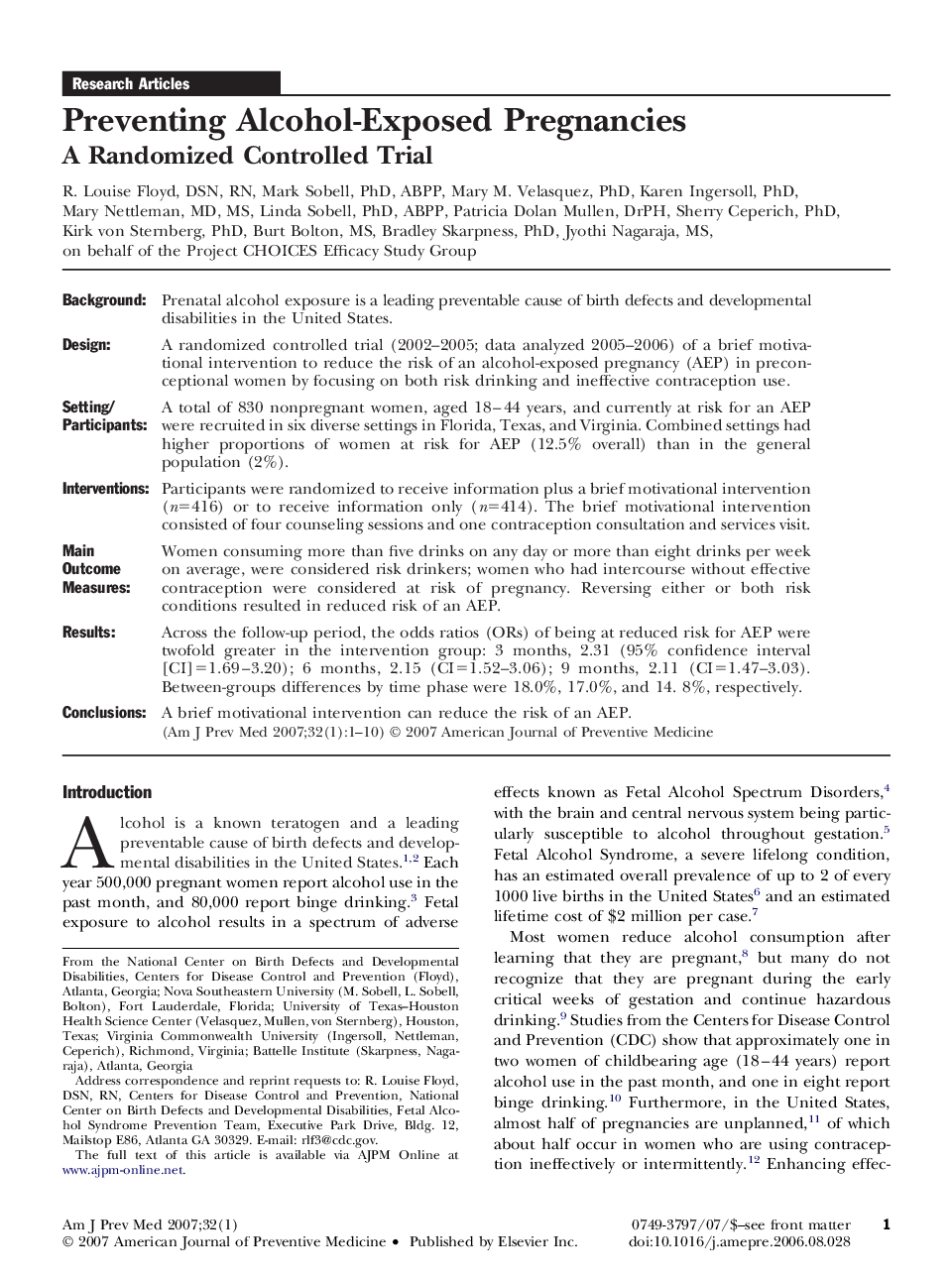| Article ID | Journal | Published Year | Pages | File Type |
|---|---|---|---|---|
| 4194585 | American Journal of Preventive Medicine | 2007 | 10 Pages |
BackgroundPrenatal alcohol exposure is a leading preventable cause of birth defects and developmental disabilities in the United States.DesignA randomized controlled trial (2002–2005; data analyzed 2005–2006) of a brief motivational intervention to reduce the risk of an alcohol-exposed pregnancy (AEP) in preconceptional women by focusing on both risk drinking and ineffective contraception use.Setting/ParticipantsA total of 830 nonpregnant women, aged 18–44 years, and currently at risk for an AEP were recruited in six diverse settings in Florida, Texas, and Virginia. Combined settings had higher proportions of women at risk for AEP (12.5% overall) than in the general population (2%).InterventionsParticipants were randomized to receive information plus a brief motivational intervention (n=416) or to receive information only (n=414). The brief motivational intervention consisted of four counseling sessions and one contraception consultation and services visit.Main Outcome MeasuresWomen consuming more than five drinks on any day or more than eight drinks per week on average, were considered risk drinkers; women who had intercourse without effective contraception were considered at risk of pregnancy. Reversing either or both risk conditions resulted in reduced risk of an AEP.ResultsAcross the follow-up period, the odds ratios (ORs) of being at reduced risk for AEP were twofold greater in the intervention group: 3 months, 2.31 (95% confidence interval [CI]=1.69–3.20); 6 months, 2.15 (CI=1.52–3.06); 9 months, 2.11 (CI=1.47–3.03). Between-groups differences by time phase were 18.0%, 17.0%, and 14. 8%, respectively.ConclusionsA brief motivational intervention can reduce the risk of an AEP.
